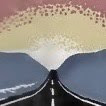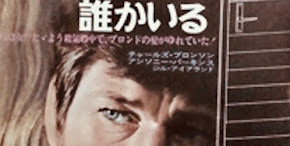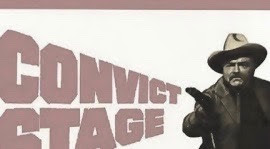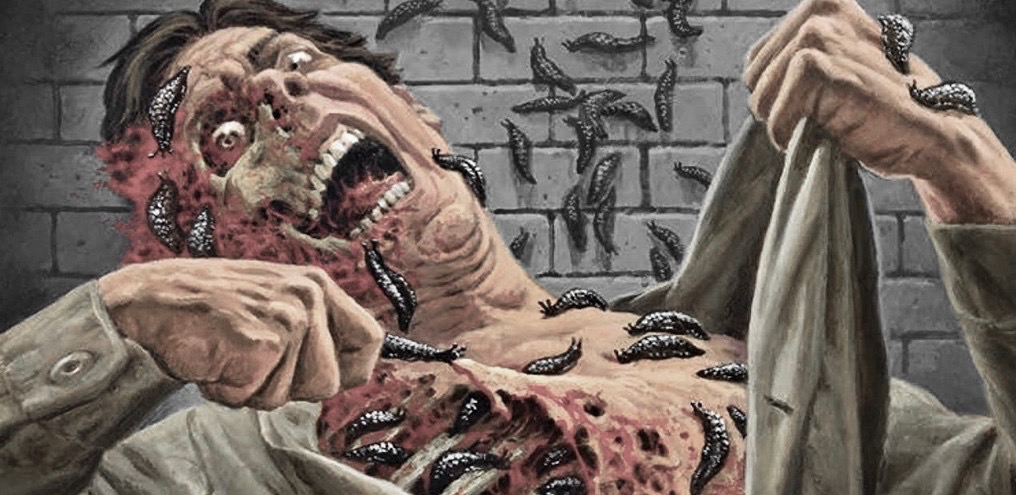 |
| Philip Seymour Hoffman as controversial author Truman Capote Year: 2004 |
Truman Capote, after writing what was considered to be the best book of its genre... a genre that he himself created with IN COLD BLOOD... basically retired and became famous for being famous, partying through two partying-decades until his slowdown and eventual death, caused by alcoholism, in 1984. And that genre is what can be considered a "true crime novel" that, based on a real life event, seems fictional in how the story flows in an otherwise page-turning, thriller fashion.
 |
| The reaping book cover |
Well the man himself, author Truman Capote, in writing this masterpiece, centers the "story" primarily on Perry Smith, the lethal trigger of two ex-convicts who traveled a long distance to rob a supposedly lucrative farm with a safe full of cash in rural Kansas, and wound up with $40 dollars cash and four dead bodies, all shot in the face/head. Capote was originally inspired to write an article about how the residents of the small town of Holcomb didn't trust each other after the killings, living in a locked-door state of ultimate paranoia. But as the case grew... and facts poured out of the woodwork, as did the names and eventual capture of the killers... Capote's basic curiosity progressed into a working obsession, especially after seeing actual crime scene photographs wherein the slain victims were given pillows to rest their heads before being shot. Why would anyone kill a person after making them feel comfortable? This insane irony was the prime question Truman was after...
 |
| Wilson & Blake |
In that, the novel seems more centered on Perry Smith's surprisingly gentle, poetically inclined, soft underbelly than the victims who, in this reader's opinion, are basically described (albeit brilliantly) more like a big city artist would look upon small town "simple folk" as the massacred Clutter family patriarch, Herb, is viewed as unpopular around town for being tight with his money and... basically had his own abundance of flaws while his family often seem like Stepford mannequins...
Sure, this is what good writers do, cover everything and everybody with an equal amount of honesty... but, unlike the classic Richard Brooks 1967 motion picture starring Robert Blake as Smith and Scott Wilson as his instigating sociopathic partner Richard "Dick" Hickock, who, according to both the novel and the movie, goaded Smith into what became the crime of the century, there's a sort of subliminal bias within the novel itself, wherein the movie seems a bit less centered on the depth of one single character while being more open-minded and equal concerning the entire canvas.
 |
| Stewart in KANE |
Enter CAPOTE, an excellent follow-up despite being made over 35-years after the theatrical IN COLD BLOOD, wherein the snoopy journalist that questions John Forsythe's chief of investigation, Alvin Dewey, is played by the same actor who uttered a famous line in CITIZEN KANE and sat lazily poolside, grinning snidely at Ralph Meeker's Mike Hammer in KISS ME DEADLY: Paul Stewart's Jensen is based on Truman Capote; yet only by his profession and a determined way of sticking around town before, during and after the murderers were captured and sentenced to hang, eventually gaining free reign into Death Row to attempt getting all the information from Smith, whom Hoffman's CAPOTE was (or seemed) fully absorbed with, attracted to and captivated by: but not without a legitimate reason... He was an author writing a book based on facts.
 |
| Bogie & Blake in MADRE |
The extremely bourgeois Paul Stewart, on the other hand, merely helps the motion picture wind down to a conclusion, and, in a very subtle manner, his narrating commentary provides a last minute anti-Death Penalty nod to the audience... Although as Robert Blake hangs from the noose, followed by the words IN COLD BLOOD on the screen at the same time, the director is less subtle...
 |
| Blu Ray Signed by Scott Wilson |
Still, the movie is very ambiguous, handing off scenes showing the mobile killers prepare for the crime, as the family goes through their comfortable everyday routine, and then, skipping past the actual murders, we venture on a road trip with Smith and Hickock, including, at one point, a jovial bluesy tune grooves as they gather enough bottles to make a few bucks after a stint in Mexico where Smith, played by the young man who was the boy that gave Humphrey Bogart a lottery ticket that catapulted the doomed gold-seeking hunt in TREASURE OF THE SIERRA MADRE, a movie that Perry himself took seriously and based he and Dick's possible "retirement" in Mexico on... Wilson's wake-up call lecture is one of his best scenes in the picture, other than a diatribe he blasts upon an interrogating cop... And so, since much of the suspense relies on Dick and Perry, even after their capture, having the writer talk and act like Truman Capote (especially in 1967) would have been a distraction, and... well... a whole other story. Sure, as the author of BREAKFAST AT TIFFANY'S and a chief contributor to THE NEW YORKER magazine, he was a known celebrity, although mostly for his words rather than personality...
 |
| PS Hoffman as Capote |
But straight-laced cop Alvin Dewey's awkward reactions to the extremely effeminate, openly flamboyant author is what possesses some of the best scenes during the first half of CAPOTE, and Philip Seymour Hoffman deserved that Oscar for not just transforming himself into Capote as an incredible imitation, but he plays the part with such confidence and blunt honesty, showing that the determined author did in fact feel deeply for Perry Smith, but also had an underlined "selfish" agenda, taking a year off to write the book at a plush overseas villa while his "Amigo Perry" waited for a response, any response, to one of many letters Capote shoved unread onto a large, dusty stack... And while the movie IN COLD BLOOD waited until the beginning of the final act to show the actual killings take place, CAPOTE, using a more rushed montage as a mellow-echoing piano score is heard throughout, waits to show the tragic payoff for a reason: what Capote finally, and in a suspenseful manner, was able to get out of Smith – the ultimate truth, at least in his perspective.
 |
| Keener as Harper Lee |
Meanwhile, Hoffman splendidly glides from scene to scene, location to location, sharing a sneaky, snarky, offbeat cadence with best friend and not yet TO KILL A MOCKINGBIRD famous Harper Lee, played with natural ease by Catherine Keener, while changing personality-driven gears only slightly when dealing with strangers and/or important individuals he must persuade, all either shocked or entertained by his obvious sexual orientation that guided his personality, built within a "prissy" voice and mannerisms, and, thankfully, CAPOTE isn't trying to make a statement: which occurs in many modern vehicles that attempt to blend current trends into the racist past, as if the character knows the future, all along, will change course. In other words, the creation of a famous novel is for everyone, working as solid entertainment beyond the art-house base it could have easily, solely, catered to. But seeing IN COLD BLOOD, or reading the book, does help CAPOTE be more relevant. And not to make the decision for you, but the movie, though three-hours long, takes a lot less time to complete.
 |
| Collins as Neo Perry |
In the side-acting department, Clifton Collins Jr.'s Perry Smith isn't doing an imitation of Robert Blake, whose performance reportedly inspired Anthony Hopkins in SILENCE OF THE LAMBS and, with a final scene that includes rain shadows resembling teardrops as he opens up about his ruthless father, Blake steals a movie that, for the most part, belonged to Scott Wilson's confident, talky Hickock beforehand. But the CAPOTE Smith, whose voice sounds very much like character-actor Frederic Forrest (Chef in APOCALYPSE NOW), is a quiet, mellow yet edgy, manipulative everyman type, playing a waiting game with his famous friend... expecting more and more favors and continuous appeals and lawyers to keep him alive, which, according to Harper Lee, her mentor and best friend... after Smith finally disclosed everything... didn't really want the duo to live, but was waiting for a perfectly suited, tragic ending for his novel that, until the actual hanging took place, had no conclusion at all. Meanwhile, it's also apparent that Capote worked to keep the boys from the gallows mainly in order to get the full story as opposed to a fair shake in an otherwise one-sided court system: he felt a hybrid of both, most likely, and it takes a gifted, expressive actor to convincingly pull off this kind of inner-struggle without being noticeable or distracting.
 |
| The Late Great Hoffman |
It's a damn shame that actor Philip Seymour Hoffman threw away his life, being one of the few average (if bizarre) looking human beings to convincingly play either strong leading men and/or even stronger, memorably scene-stealing side-characters. And compared to the massacre in Kansas that shook-up a small town, Hoffman's performance, obviously a leading role by the title and the fact this contained biopic is based on the author's struggle to complete his game-changing novel, also serves as a peripheral observer to those around him, especially the aforementioned Kansas Bureau of Investigation Officer Dewey... If mirroring his narrow-minded Right Wing performance in AMERICAN BEAUTY, Chris Cooper could have overwhelmed the disdain for such a flamboyant persona as Capote but instead, with an eventual respect for a man that drank on a film set with Humphrey Bogart and John Huston, their polar opposite personalities eventually, quietly click without either admitting it. Yet one particular scene, as Capote hires a professional photographer to capture smiling and sexy images of the ruthless killers, Cooper's mute expression speaks volumes.
 |
| Truman Capote |
From the beginning and sustaining throughout, there are a few scenes in jazzy, elegant New York City, where Capote is truly at home, spending time with his live-in lover (Bruce Greenwood as comparably mediocre novelist Jack Dunphy) or drinking and joking around with an array of intellectuals, all stunned and overshadowed in the man's presence, whose writing style was later described by the ever-cynical yet brilliantly solid scribbler Charles Bukowski as being liken to "ice skating," and yet, those blades cut through the ice while elegantly gliding upon it. A befitting segue to the man who wrote what would be his last novel, the
chilling masterpiece, IN COLD BLOOD, that Capote himself wished he'd written more concise and less poetically rambling... But CAPOTE director Bennett Miller and BLOOD director Richard Brooks deserve an equally-praised ovation for bringing one man's work to life that, unfortunately, took four innocent lives to make happen... If, say, in the 1967 feature, a whining Wally Cox type played the actual Truman Capote, there wouldn't be the capability, years later, for director Miller; scriptwriter Dan Futterman based on Gerald Clarke's book; and last but not least, the late Hoffman himself to not only follow-up one of the greatest, most underrated classic motion pictures of all time, but to fill in the gaps intentionally left out... Better late than never!
 |
| Not Scott Wilson |
CAPOTE RATING: ****1/2
IN COLD BLOOD: *****
SOME TRIVIA: While Robert Blake and Scott Wilson were equally important in the theatrical IN COLD BLOOD, in CAPOTE, actor Mark Pellegrino, best known for playing the thug who isn't sure what a bowling ball is, and therefore is obviously not a golfer in THE BIG LEBOWSKI, is hardly shown at all other than the... let's face it... offensive photo shoot liken to when ROLLING STONE MAGAZINE turned the surviving Boston City Bomber into one of the Jonas Brothers. But despite that, it's a great scene nonetheless, showing how Capote was using publicity to promote a book that he didn't actually begin writing until well after all his investigation into the crime, and long conversations with Perry Smith. During one of the film's best scenes, mentioned in the above-review, when Truman is telling his story about working for John Huston in a Humphrey Bogart picture, it's BEAT THE DEVIL, a sort of parody on the Film Noir genre. And according to an under-breath statement during the screening party of Harper Lee's cinematic adaptation of her best-selling novel TO KILL A MOCKINGBIRD, he really didn't get what all the fuss was about: obviously not a fan of the book, or perhaps driven by jealousy since, at that point, IN COLD BLOOD was still being written. Ironically, neither Capote or Lee completed another novel.... unless you count the "new novel" written by Lee finished long ago and published recently, which, according to close sources, she's too far-gone to have given this antique the green light; but basically she's been beyond-retired for years, as was Capote if you don't count his fantastic book of short stories, MUSIC FOR CHAMELEONS. And to see the actual (yet older) Truman Capote, rent Neil Simon's classic comedy whodunit MURDER BY DEATH. And at this point, if THE WALTONS were THE WALKING DEAD, Scott Wilson's Hershel Greene would be Will Geer's beloved grandpa... The latter who beyond-effectively sent the boys to their grave as the intense, Bible-spouting prosecutor. For people who remained Scott Wilson fans throughout his long purgatory years as an "aren't you that actor?" phase, it's nice he's the Millennial generations favorite old-timer... But hey, kiddos, watch IN COLD BLOOD and see this once young man and wonder why on earth he or Blake didn't even get nominated for an Oscar, which, by
clicking this link, you'll see an entire list of actors who Oscar snubbed, including and headlined by Eric Roberts, who ironically played Blake's part in the subpar IN COLD BLOOD television remake directed by the otherwise talented Jonathan Kaplan and co-starring Anthony Edwards filling Wilson's shoes... What on Earth were they thinking? STAR 80 as Smith is possible, but Goose as Hickock... C'mon!
AND CLICK HERE FOR A WRITTEN INTERIVEW WITH IN COLD BLOOD ACTRESS BRENDA CURRIN.





































































No comments:
Post a Comment
Note: Only a member of this blog may post a comment.